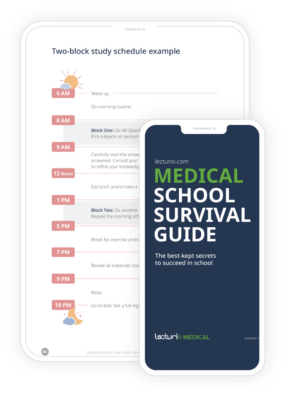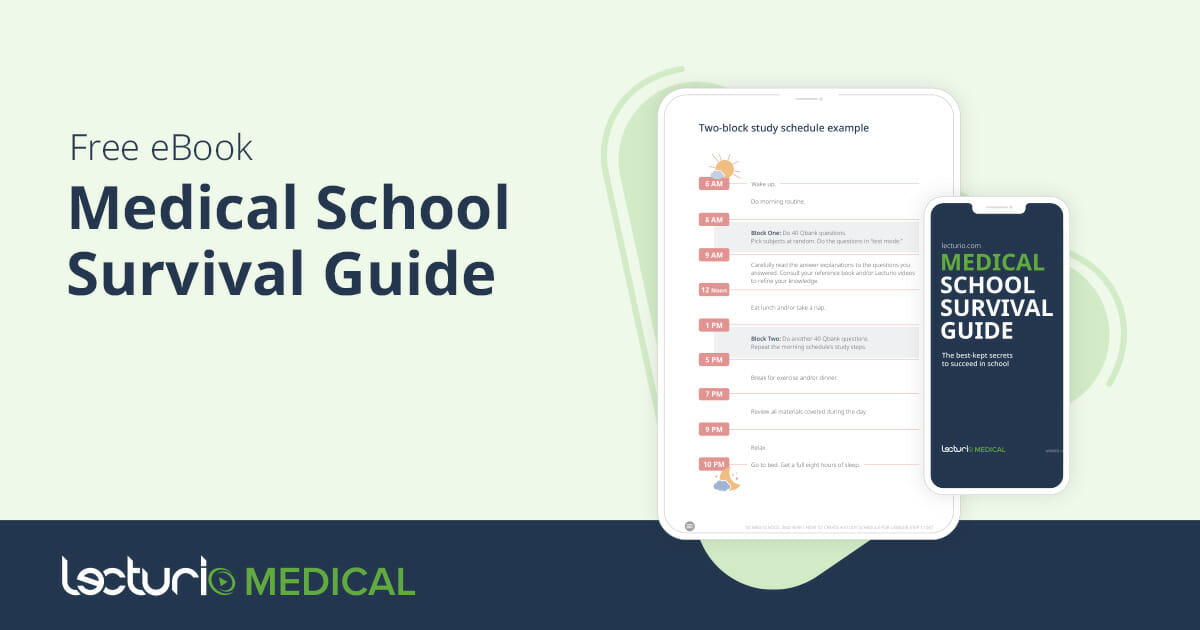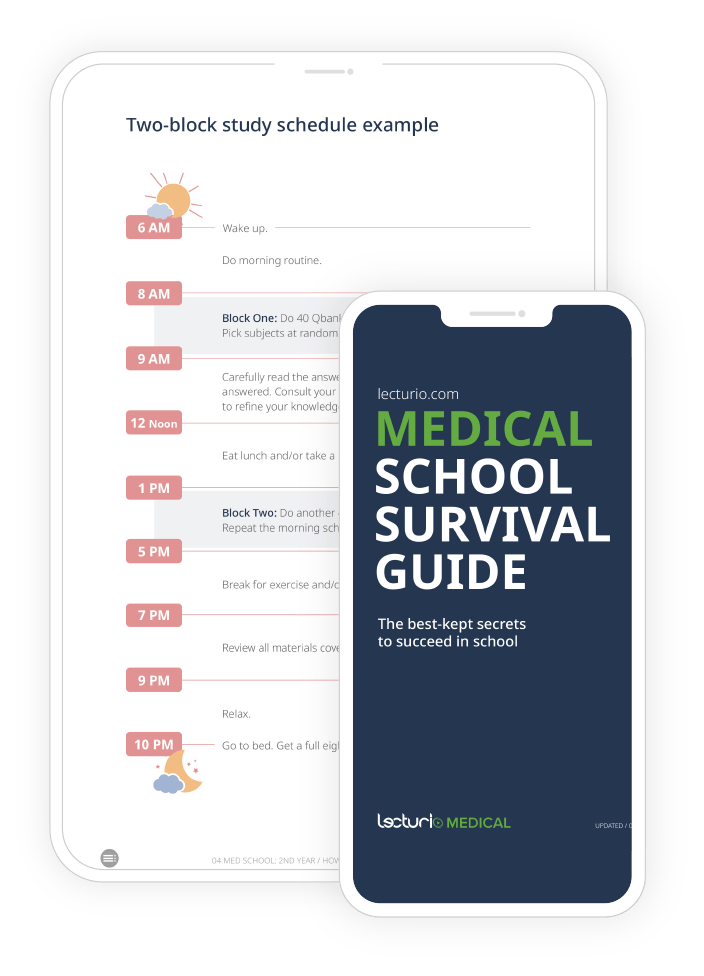Congratulations! You have worked hard and you are now on your way to being a practicing physician. During your first year of medical school, all the work you did to get into medical school will be put to the test.
Three key elements play into the success of first-year medical students: your study techniques, the resources you use, and the mentors you start building relationships with.
These are all interconnected and require strategy and perseverance, which you already have, or are very close to having, if you are starting your medical school journey. One of the big goals of your first year of medical school is figuring out how to retain the large amount of information that is about to come your way and building up your foundational medical knowledge for the future. Here are some tips and tricks to help you:
Study Strategies
Studying can be hard and extremely time-consuming, but with the right techniques, it doesn’t have to be. One technique is using the three review rule: review the material before class, during class, and after class. This technique will help you become more comfortable because you are responsibly exposing yourself to the content. Combine this with active learning, in which you regularly check in with yourself as you study to make sure you’re understanding all material, and you’re sure to improve your retention. There are many more study strategies out there, so get familiar with new techniques that may help you. Practicing effective study strategies should minimize this feeling because you’ll be prepared.
While of course learning and reviewing material is important to studying, taking care of yourself and allowing yourself to rest properly are equally important. Try not to cram before a class or an exam because you are not going to remember that information beyond the test. Set aside study time that also doesn’t negatively impact your sleep schedule. If you’re a morning person, waking up early to study is likely good. But if you’re a night owl, adjusting your study schedule accordingly will allow you to maximize your productivity in the time you’re most able to focus. The better you sleep, the more of what you’ve studied will be encoded in your long-term memory. Rest is critical, both for your health and for your memory. Don’t bet on that next cup of coffee being the key to pushing through; prepare so you won’t always have to just push through.
Utilizing Your Resources
Study strategies are great, but how do you make sure you are studying the right material? Don’t worry! Figuring out which resources to use and how to effectively use them is the first step.
Two resources that are great to start off with are high-yield materials and Qbanks.
High-yield materials are the video lectures, reference books, etc. that cover exactly what you need to know for medical school and licensing exams, such as the USMLE®. These materials can also be reviewed with Qbanks. Lecturio’s Qbank is focused on USMLE-style questions but can also be utilized to prepare for other medical school subjects. There are even NBME-based subject-specific study plans available within the platform, which combine high-yield video lectures, quiz questions, and Qbank questions into intensive review schedules for you.
You will also want to engage as many of your senses as you can. Think of a time when a smell or sound brought back a memory. A similar experience can happen with the material you are studying. You can use videos alongside medical reference books while you are writing down notes. The engagement of multiple senses (listening, writing down information, etc.) will help you make the information stick.
Related videos
Finding a Mentor
Mentors can be an invaluable resource. Remember, they were once in a very similar situation to yours. Your mentor can come from any sort of background: they can be an upperclassman, a resident, a practicing physician, or someone else in the medical field.
A great place to connect with your mentor is through med school-sponsored events or through social media. You can ask them to get coffee or find another way to stay in regular contact. You will also meet mentors through volunteering or shadowing opportunities. When you meet a mentor through those experiences, take this prime opportunity to ask them questions about their field. Your interests in their career path can be a great way to kick-start a long-term relationship.
One of the best parts of a mentor is that they will also be invested in your success. Their investment in your success will help you advance in your program and career. It is always nice to have someone in your corner when things get overwhelming, especially someone who has already walked the path you are on.
The Summer After Your First Year of Med School
You’ve made it through your first year of medical school! However, summer “breaks” aren’t really breaks for most medical students, especially in upper years… The first step towards having a successful and productive summer should actually begin halfway through your first year of med school: research and apply for opportunities in a research lab or to do clinical work locally or abroad. Check with your mentors to get a few suggestions on where to apply. They want to help you and they have the knowledge to give you a boost with certain opportunities or connections. You should also take some time in the summer to really review what you need to move forward as a second year medical student, as you’ll continue building upon your knowledge foundation for the rest of your medical career.
Working in a lab or continuing to study isn’t your only option, however. You also want to use this summer to pursue non-academic interests. You worked hard this year and you deserve to set some time aside for you. Find or keep developing a hobby or interest you have and invest time in it. This will help you start your second year of medical school with a clear mind.
Above all, take this summer to reflect on what you learned and how you can carry your new confidence into the second year of medical school.







